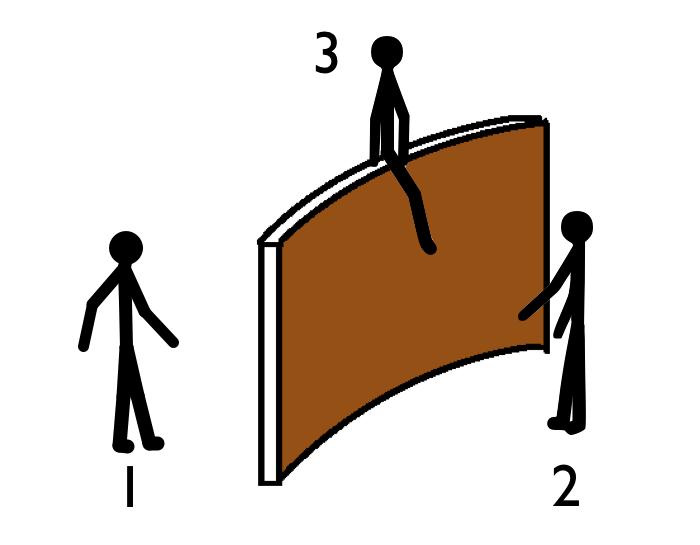This is an NLP process that enables us to discover different points of view on a specific situation. It works especially well in situations where you have have an awkward conversation with someone, or you are not getting on with someone.
Using the process regularly enables us to improve our vital awareness resource.
For a full explanation and demonstration you can visit our NLP online training centre or attend one of our NLP Training Courses.
First Perceptual Position: Looking at the world from your own point of view, through your own eyes. You are totally associated and not taking account of anyone else’s point of view, your own referential index.
How does this affect me?
Second Perceptual Position: Considering how it would look, feel, and sound for another person. Looking through another person’s eyes; appreciating the other point of view.
How would this appear to them?
The stronger rapport you have with another person, the easier it will be for you to appreciate their reality and achieve second position.
Third Position or Meta Position: Observing the system or feedback loop of first and second positions from a dissociated position. Seeing the world from an outside point of view, as an independent observer, someone with no personal involvement in the situation. (Meta from Greek meaning beyond, above, at a higher level.)
How would this look to someone who is not involved?
This creates an objective viewpoint from which you can generate and evaluate some useful choices in a difficult situation.
All three “perceptual positions” are equally important and the purpose is to be able to move between them freely, taking the information gained from each, to inform the system differently. This is the basis of a Triple Description.
The benefit of looking at an event from different points of reference is that:
- There is no right perspective in any situation
- Not everyone shares our point of view
- You build understanding from different perspectives
4 Perceptual Positions based on time
Past, present, future, atemporal (free from limitations of time). Certain emotions are time dependent, so if you shift the time, then you’ll change the emotion.
Eg Anxiety is future dependent. If you take something that you are anxious about and put it in the past then you can’t be anxious about it anymore.
Perceptual Positions blog article

